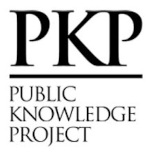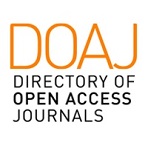Literatura Electrónica Experimental en el Sur Global: una contribución política a las humanidades digitales críticas y creativas
DOI:
https://doi.org/10.29147/datjournal.v8i2.687Palabras clave:
Literatura electrónica experimental, Humanidades digitales, Pensamiento decolonial, América LatinaResumen
Claudia Kozak evalúa el potencial de la literatura electrónica experimental para construir caminos críticos decoloniales para las humanidades digitales globales. Enmarcando su perspectiva en las Epistemologías del Sur (Sousa Santos) y en el pensamiento decolonial (Mignolo), llama la atención sobre las políticas del conocimiento y analiza cuestiones como las hegemonías lingüísticas, los imaginarios en la literatura electrónica, las genealogías emergentes del(los) Sur(es) 2 y la mezcla inesperada entre el experimentalismo y la literatura electrónica de tercera generación en América Latina.
Descargas
Citas
@memezungun. Memes en Mapudungun. Disponível em: https://www.facebook.com/memezungun/. Acesso em 21 nov. 2020.
AGAMBEN, Giorgio. Homo Sacer. Sovereign Power and Bare Life. Standford University Press, 1998.
AGUILAR SÁNCHEZ, Eduardo. _Ñuu Savi Memes. Disponível em: https://rising.globalvoices.org/lenguas/2020/03/06/nuu-savi-memes/. Acesso em 21 nov. 2020.
ALACÁN QUINO, Jaquelyn Alexandra. Kojtzijon pa Kaqchikel. Disponível em: https://rising.globalvoices.org/lenguas/2020/03/11/kojtzijon-pa-kaqchikel/. Acesso em 21 nov. 2020.
BENSE, Max and Abraham Moles (eds.). The Theory of Information and the New Aesthetics. Bit International, 1, 1968, 1-130. Disponível em: https://monoskop.org/images/b/bf/BitInternational1TheTheoryofInformationsandtheNewAesthetics_1968.pdf. Acesso em 31 jan. 2019.
BERRY, David M. “Introduction: Understanding the Digital Humanities.” Understanding Digital Humanities, David Berry (ed). London: Palgrave Macmillan, 2012, 1-26. Disponível em: http://slidepdf.com/reader/full/introduction-digital-humanities-2. Acesso em 02 nov. 2020. DOI: https://doi.org/10.1057/9780230371934_1
CUMATRON. https://cumatron.win/ Acesso em 28 out. 2020.
CYTLAK, Katarzyna. “Redes marginales en los años sesenta y setenta.” Órbita Vigo. Trayectorias y proyecciones. Berenice Guastavino (comp.), La Plata: Papel Cosido. Registros sobre Arte en América Latina, Facultad de Bellas Artes de la Universidad Nacional de La Plata, 2019, 73-82. Disponível em: http://papelcosido.fba.unlp.edu.ar/pdf/libros/OrbitaVigoElectronico.pdf. Acesso em 07 nov. 2020.
DOT, Ana. “Arte y Traducción en la Era Digital: Estudio de El 27 || The 27th, de Eugenio Tisselli.” Barcelona, Research, Art, Creation, 8/1 (2020): 40-60. doi: 10.17583/brac.2020.3206. DOI: https://doi.org/10.17583/brac.2020.3206
Expo/Internacional de Novísima Poesía/69. Catálogo. Centro de Artes Visuales del Instituto Torcuato Di Tella, 1969.
FEENBERG, Andrew. “Introducción. La variedad de las teorías”. Transformar la tecnología. Una nueva visita a la teoría crítica. Bernal: Universidad Nacional de Quilmes, 2012, 21-67.
FIOROMONTE, Domenico. “Towards a Cultural Critique of the Digital Humanities.” Historical Social Research, 37-3, 2012, 59-76. Disponível em: https://nbn-resolving.org/urn:nbn:de:0168-ssoar-378525. Acesso em 30 set. 2020.
_____. “¿Por qué la digitalización es un problema político?” Territorios Digitales: Construyendo Unas Ciencias Sociales Y Humanidades Digitales. Libro de resúmenes del I Congreso Internacional Territorios Digitales. Lidia Bocanegra Barbecho & Esteban Romero Frías (eds.). Medialab UGR, Universidad de Granada, 2018. Disponível em: http://digibug.ugr.es/handle/10481/53479. Acesso em 16 mai 2019.
_____. “Lingue, codice, rappresentanza. Margene delle Digital Humanities”. Filologia digitale: problemi e prospettive. Roma: Bardi Edizioni, 2017, 114-140. Disponível em: https://www.academia.edu/35589134/LinguecodicirappresentanzaMarginidelleDigitalHumanities. Acesso em 28 set. 2020.
FLUSSER, Vilém. A escrita. Há futuro para a escrita? São Paulo: Annablume, 2010.
FRITZ, Darko. “Vladimir Bonačić: Computer-Generated Works Made within Zagreb's New Tendencies Network (1961-1973)”. Leonardo, 41-2, 2008, 175-183. Disponível em: https://www.jstor.org/stable/20206560. Acesso em 7 nov. 2020. DOI: https://doi.org/10.1162/leon.2008.41.2.175
GOLDSMITH, Kenneth. Uncreative Writing: Managing Writing in the Digital Age. New York: Columbia University Press, 2011.
GÓMEZ, Verónica Paula. “Lenguas migrantes y desvíos críticos en The 27th // El 27th de Eugenio Tiselli.” Artelogie Recherche sur les arts, le patrimoine et la littérature de l'Amérique latine. 11, 2017. DOI: 10.4000/artelogie.1485. DOI: https://doi.org/10.4000/artelogie.1485
GRADIN, Charly. (spam). Buenos Aires: Ediciones Stanton, 2011.
HIGGINS, Hannah B.; KAHN, Douglas. Berkeley and Los Angeles: University of California Press, 2012.
HIRŠAL, Josef and Bohumila, Grögerová. _Experimentální poezie. Prague: Odeon, 1967. Disponível em: https://r888888m.sunse7.com/post/627865171453427712/experiment%C3%A1ln%C3%AD-poezie-edited-by-josef-hir%C5%A1al-and. Acesso em 7 nov. 2020.
INMAN BERENS, Kathy. ““Decolonize” E-Literature? On Weeding the E-lit Garden”. Electronic Book Review, 5 jul. 2020. Disponível em: https://doi.org/10.7273/svqq-ab68. Acesso em 15 out. 2020.
KLLITSCH, Christoph. “Information Aesthetics and the Stuttgart School.” Mainframe Experimentalism. Early Computing and the Foundations of the Digital Arts. Ed.
KOZAK, Claudia. “Electronic Literature Experimentalism beyond the Great Divide. A Latin American Perspective.” Electronic Book Review, 1 mar. 2020. https://doi.org/10.7273/rpbk-9669. Acesso em 30 out. 2020.
_____. “Out of bounds. Searching Deviated Literature in Audiovisual Electronic Environments”. Joseph Tabbi, Gabriel Tremblay-Gaudette, & Dene Grigar (eds.). Chercher le texte: The Proceedings for the ELO 2013 Conference. Vancouver, Washington: Nouspace Publications / Washington State University Vancouver, 2018. https://doi.org/10.7273/2WKK-BV06. Acesso em 8 nov. 2020.
_____. “Latin American Electronic Literature: When, Where and Why.” #WomenTechLit, María Mencía (ed.). Morgantown: Virginia University Press, 2017, 55-72.
_____. “Literatura expandida en el dominio digital.” El taco en la brea, 6, 2017, 220-245, Disponível em: https://bibliotecavirtual.unl.edu.ar/publicaciones/index.php/ElTacoenlaBrea/article/view/6973. Acesso em 27 nov. 2017. DOI: https://doi.org/10.14409/tb.v0i6.6973
LIU, Alan. “Where Is Cultural Criticism in the Digital Humanities?” Debates in The Digital Humanities, Mathiew K. Gold (ed.). Minneapolis: University of Minnesota Press, 2012, 490-509. Disponível em: https://dhdebates.gc.cuny.edu/projects/debates-in-the-digital-humanities. Acesso em 30 out. 2020. DOI: https://doi.org/10.5749/minnesota/9780816677948.003.0049
MACKERN, Brian. Net art latino database. http://meiac.es/latino/index.html. Acesso em 21 nov. 2020.
MACKERN, Brian; CASARES, Nilo (eds.). Net art latino database. Badajoz: MEIAC, 2008.
MANN, Monique and Angela Daly. “(Big) Data and the North in South: Australia’s Informational Imperialism and Digital Colonialism”. Television & New Media 2019, Vol. 20(4) 379-395. Disponível em: https://journals.sagepub.com/doi/10.1177/1527476418806091. Acesso em 16 dez. 2019.
MENA ANTEZANA, Marisol. Quechua Memes. Disponível em: https://rising.globalvoices.org/lenguas/2020/02/15/quechua-memes/. Acesso em 21 nov. 2020.
MERCADO, Alizabeth. “Broken English, artefactos textuales”. Noticias 22 Digital. June 19, 2018. Disponível em: https://noticias.canal22.org.mx/2018/06/19/broken-english-artefactos-textuales/. Acesso em 8 nov. 2020.
MIGNOLO, Walter. The Darker Side of Western Modernity. Global Futures, Decolonial Options. Durham & London: University of Duke Press, 2011. DOI: https://doi.org/10.1215/9780822394501
_____. “La opción de-colonial: desprendimiento y apertura. Un manifiesto y un caso.” Tabula Rasa, 8 (2008): 243-281. Disponível em: http://www.revistatabularasa.org/numero-8/mignolo1.pdf. Acesso em 10 out. 2020. DOI: https://doi.org/10.25058/20112742.331
MILAN, Stefania; TRERÉ, Emiliano. “Big Data from the South(s): Beyond Data Universalism.” Television & New Media, 20-4, 2019, 19-335. Disponível em: https://journals.sagepub.com/doi/full/10.1177/1527476419837739. Acesso em 16 dez. 2019. DOI: https://doi.org/10.1177/1527476419837739
MOSCATI, Giorgio et al. “Art and Computing”. First published as “Arte e Computação: Um Depoimento.” Cadernos MAC-2, 1986, 3-17. Disponível em: www.ekac.org/moscati.html. Acesso em 8 nov. 2020.
NACHER, Anna. “Gardening E-literature (or, how to effectively plant the seeds for future investigations on electronic literature)”, Electronic Book Review, Jul. 2020. https://doi.org/10.7273/zsyj-wm58. Acesso em 15 out. 2020.
NASSER, Ramsey. “ANIMAL’s feature Artist’s Notebook”. Disponível em: http://animalnewyork.com/2014/artists-notebook-ramsey-nasser/. Acesso em 5 nov. 2020.
_____. “Author’s Statement”. ELO Collection 3, 2018. Disponível em: https://collection.eliterature.org/3/work.html?work=%D9%82%D9%84%D8%A8. Acesso em 4 nov. 2020.
_____. Ramsey Nasser. Disponível em: https://nas.sr/about/. Acesso em 4 nov. 2020.
NEPOTE, Mónica. “Broken English la editorial lol en México”. Pez Banana, 23, 2018, 14-15. Disponível em: http://brokenenglish.lol/imagenes/nepote%20-%20broken%20(pez%20banana).pdf. Acesso em 08 nov. 2020.
OPAZO, Jonnathan; CZ; ATA. “Apuntes para una poética del meme”. 2019. Broken english. Disponível em: http://apuntesparaunapoetica.brokenenglish.lol/. Acesso em 08 nov. 2020.
PÉREZ RAMÍREZ, Rodrigo. Interview with Brenda Camacho. Glitch#4. Segunda temporada. Disponível em: https://twitter.com/hashtag/GLITCH?src=hashtag_click. Acesso em 21 nov. 2020.
_____. Entrevista. Disponível em: https://rising.globalvoices.org/lenguas/2019/04/15/presentamos-a-rodrigo-perez-ramirez-anfitrion-de-la-semana-15-al-21-de-abril-para-actlenguas/. Acesso em 21 nov. 2020.
_____. “ᴟbák šéʔʟ (Borrego alas de mariposa)”. Disponível em: https://www.tierraadentro.cultura.gob.mx/%e1%b4%9fbak-se%ca%94%ca%9f-si%ca%94l-%c9%b1-si%ca%94%ca%9f/. Acesso em 21 nov. 2020.
_____. “Kè-ní ré tá díɁztèɁ (Baila el zapoteco)”. Disponível em: https://www.tierraadentro.cultura.gob.mx/ke-ni-re-ta-diz-%ca%94-te-%ca%94-baila-el-zapoteco/. Acesso em 21 nov. 2020.
PITMAN, Thea; TAYLOR, Claire. “Where’s the ML in DH? And Where’s the DH in ML? The Relationship between Modern Languages and Digital Humanities, and an Argument for a Critical DHML.” DHQ: Digital Humanities Quarterly, 11-1, 2017, 1-13. Disponível em: http://digitalhumanities.org:8081/dhq/vol/11/1/000287/000287.html. Acesso em 28 out. 2020.
RED DE ACTIVISMO DIGITAL EN LENGUAS INDÍGENAS. Disponível em: https://rising.globalvoices.org/lenguas/. Acesso em 21 nov. 2020.
RETTBERG, Scott; SAUM, Alex. “Introduction: Electronic Literature as a Framework for the Digital Humanities”, Electronic Book Review, 2 ago. 2020, https://doi.org/10.7273/vyqe-dq93. Acesso em 13 ago. 2020.
RIVERA CUSICANQUI, Silvia. Sociología de la imagen. Miradas ch’ixi desde la historia andina. Buenos Aires. Tinta Limón, 2015.
SAUM-PASCUAL, Alex. “Is Third Generation Literature Postweb Literature? And Why Should We Care?”. Electronic Book Review, May 3, 2020. https://doi.org/10.7273/60pg-1574. Acesso em 20 nov. 2020.
SEGURA, María Soledad; WAISBORD, Silvio. “Between Data Capitalism and Data Citizenship.” Television & New Media, 20-4, 2019, 412-419. Disponível em: https://journals.sagepub.com/doi/10.1177/1527476419834519. Acesso em 16 dez. 2019. DOI: https://doi.org/10.1177/1527476419834519
SOUSA SANTOS, Boaventura de. Epistemologies of the South. Justice against Epistemicide. New York: Routledge, 2016.
_____. “Epistemologies of the South and the future.” From the European South, 1, 2016, 17-29. Disponível em: http://europeansouth.postcolonialitalia.it/. Acesso em 5 jun. 2019.
SOUSA SANTOS, Boaventura de; MENESES, Maria Paula. “Introducción”. Epistemologías del Sur. Perspectivas. Boaventura de Sousa Santos e Maria Paula Meneses (ed.). Madrid: Akal, 2014 , 7-17.
TISSELLI, Eugenio. Los ojos de la milpa. Disponível em: http://sautiyawakulima.net/oaxaca/about.php. Acesso em 21 nov. 2020.
_____. OjoVoz. Disponível em: http://ojovoz.net/index.html. Acesso em 21 nov. 2020.
Descargas
Publicado
Cómo citar
Número
Sección
Licencia
Derechos de autor 2023 DAT Journal

Esta obra está bajo una licencia internacional Creative Commons Atribución 4.0.


























